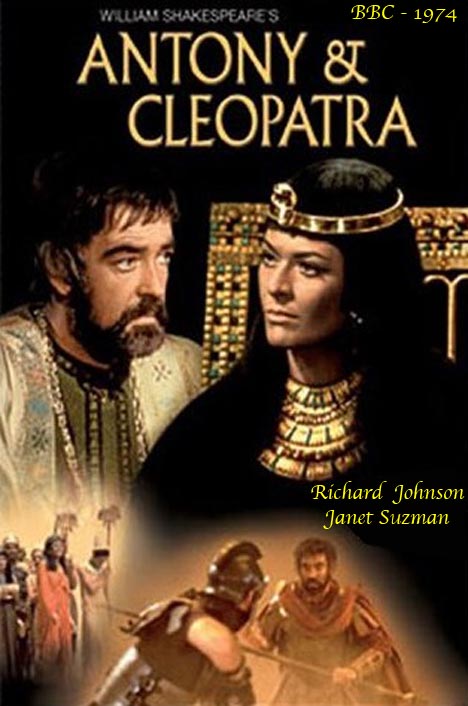 Rereading William Shakespeare’s Antony and Cleopatra brought to mind how many suicides the Bard wrote in his tragedies. There are about a dozen suicides in Shakespeare’s writings that are portrayed out or talked about.
Rereading William Shakespeare’s Antony and Cleopatra brought to mind how many suicides the Bard wrote in his tragedies. There are about a dozen suicides in Shakespeare’s writings that are portrayed out or talked about.On the subject of suicide, the Canadian Mental Health Association says this:
"Experts in the field suggest that a suicidal person is feeling so much pain that they can see no other option. They feel that they are a burden to others, and in desperation see death as a way to escape their overwhelming pain and anguish. The suicidal state of mind has been described as constricted, filled with a sense of self-hatred, rejection, and hopelessness."
Some of Shakespeare’s characters are historical, thereby their suicides are a historical fact.
Antony and Cleopatra, two famous lovers in history took their own lives to escape being captured alive and put on display in Rome. Antony had just suffered a major military defeat and hearing Cleopatra was dead fell on his sword. Cleopatra killed herself after witnessing the death of Antony.
Neither, it seemed, believed life was worth living and suicide was an honorable option.
 Taking your own life was a very Roman thing to do. In Julius Caesar both Brutus and Cassius fell on their sword after being defeated by Antony and Octavian’s forces. It was probably a more viable for Brutus who heard his wife, Portia, had killed herself swallowing fire.
Taking your own life was a very Roman thing to do. In Julius Caesar both Brutus and Cassius fell on their sword after being defeated by Antony and Octavian’s forces. It was probably a more viable for Brutus who heard his wife, Portia, had killed herself swallowing fire. Lady Macbeth took her own life (though we do not witness it) presumably because she could not live with the fact that she, along with her husband, murdered King Duncan.
Shakespeare’s most famous couple, Romeo and Juliette are young people in love.
The Canadian Mental Health Association says this about youth and suicide:
 "Adolescence is a time of dramatic change. The journey from child to adult can be complex and challenging. Young people often feel tremendous pressure to succeed at school, at home and in social groups. At the same time, they may lack the life experience that lets them know that difficult situations will not last forever. Mental health problems commonly associated with adults, such as depression, also affect young people. Any one of these factors, or a combination, may become such a source of pain that they seek relief in suicide."
"Adolescence is a time of dramatic change. The journey from child to adult can be complex and challenging. Young people often feel tremendous pressure to succeed at school, at home and in social groups. At the same time, they may lack the life experience that lets them know that difficult situations will not last forever. Mental health problems commonly associated with adults, such as depression, also affect young people. Any one of these factors, or a combination, may become such a source of pain that they seek relief in suicide."Romeo and Juliette are like a young Antony and Cleopatra. They do not wish to live without the other.
It is not a coincidence that these are classified as tragedies. Suicide is a tragedy. There is no honor in it. In some of these cases these characters take their own lives when they cannot get their own way. It is a selfish act. It is like a child playing with others who, when they can’t get their own way, takes their ball and goes home.
None of these characters had the character to live on despite pain and hardship and loss. They may have not loved wisely, but too well; however, they should have loved their own lives more.
Life is not always easy. To live on, to endure says a lot about who we are.
Stephen Gaspar's books are available on Amazon


